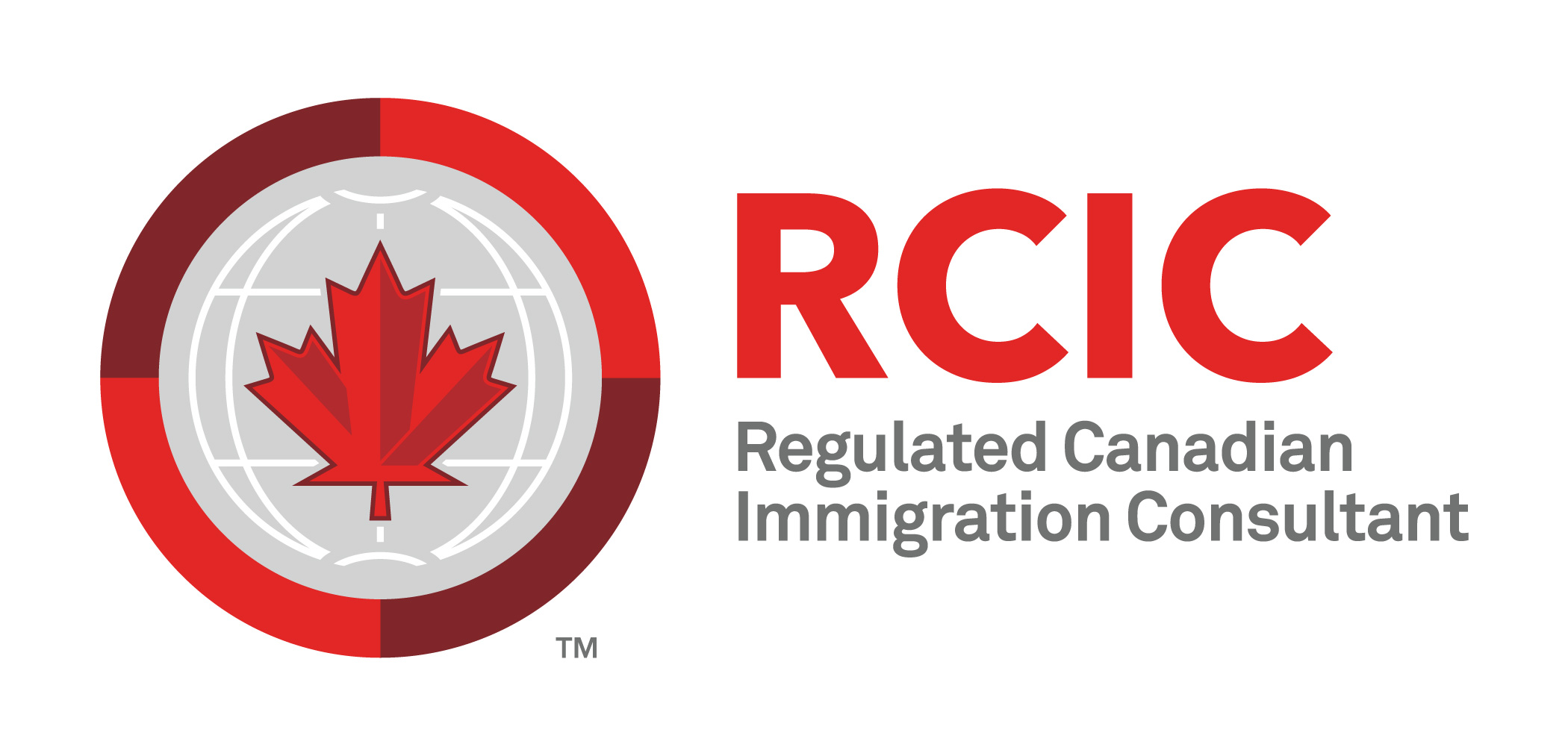Express Entry
You’ll be ranked in the Express Entry pool using the Comprehensive Ranking System if you’re eligible for one or more of the Express Entry programs and submit your profile (CRS).
The CRS is a points-based system to:
- assess and score your profile and
- rank it in the Express Entry pool
You must have a score higher than the minimum points score for your round of invitations to be invited. In order to be rated in the pool of applicants, you must:
- Create Express entry Profile
- Upload all the necessary documents
- Submit your Express Entry profile
- Get an invitation and apply
Federal Skilled Workers
To be eligible for this program, you must meet certain criteria. If you meet all the minimal requirements, your application will be evaluated on the following criteria:
- age
- education
- work experience
- whether you have a valid job offer
- English and/or French language skills
- adaptability
These Criteria are part of a 100-point grid that is used to determine whether you are eligible for the Federal Skilled Worker Program. You gain points based on your performance in each of the six factors.
The current pass mark is 67 points.
Work Experiences
at least 1 year of continuous work or 1,560 hours total (30 hours per week)—you can meet this in a few different ways:
- full-time at 1 job: 30 hours/week for 12 months = 1 year full-time (1,560 hours)
- equal amount in part-time work: for example 15 hours/week for 24 months = 1 year full time (1,560 hours)- You can work as many part-time jobs as you need to meet this requirement
- full-time at more than 1 job: 30 hours/week for 12 months at more than 1 job = 1-year full time (1,560 hours)
Work experience obtained while studying may be used to meet your minimum requirements if the work:
- was paid by wages or commissions
- was continuous (no gaps in employment), and
- meets all the other requirements of the Program.
Language
In all four skills, you should get a minimum score of 7 on the Canadian Language Benchmark (CLB).
Proof of funds
You and your family must have enough money to settle in Canada, you must show that you have enough money to establish in Canada, unless you:
- are currently able to legally work in Canada
- have a valid job offer from an employer in Canada.
Federal Skilled Trades
To be eligible under this stream, you must:
- meet the minimum score of Canadian Language Benchmark 5 for speaking and listening, and Canadian Language Benchmark 4 for reading and writing
- within the last 5 years, have at least 2 years of full-time job experience (or an equal amount of part-time work experience) in a skilled trade
- your work experience must be for paid work (paid wages or earned commission—volunteer work or unpaid internships don’t count)
- meet the work requirements for that skilled trade as outlined in the National Occupational Classification, except for needing a certificate of qualification
- have a
- valid job offers of full-time employment for a total period of at least 1 year or
- certificate of qualification in that skilled trade issued by a Canadian provincial, territorial or federal authority
Skilled trades for the Federal Skilled Trades Program are organized under these groups of the National Occupational Classification (NOC):
- Major Group 72, industrial, electrical and construction trades
- Major Group 73, maintenance and equipment operation trades
- Major Group 82, supervisors and technical jobs in natural resources, agriculture and related production
- Major Group 92, processing, manufacturing and utilities supervisors and central control operators
- Minor Group 632, chefs and cooks
- Minor Group 633, butchers and bakers
Note: The Federal Skilled Trades Program has no educational requirements.
Canadian Experience Class
This program has minimum requirements for to be eligible:
- For each language skill (writing, reading, hearing, and speaking), meet the required language levels for your employment.
- have at least one year of skilled work experience in Canada in the previous three years before applying—you can achieve this requirement in a variety of ways:
- full-time at 1 job: 30 hours/week for 12 months = 1 year full-time (1,560 hours)
- equal amount in part-time work: for example, 15 hours/week for 24 months = 1-year full time (1,560 hours)-You can work as many part-time jobs as you need to meet this requirement.
- full-time work at more than 1 job: 30 hours/week for 12 months at more than 1 job = 1-year full time (1,560 hours)
- have gained your work experience by working in Canada while on a temporary resident status with authorization to work
Note: Any hours you work in excess of 30 per week are not counted. There is no education requirement for the Canadian Experience Class.
Caregivers
Foreign nationals who meet the following criteria are able to apply under this stream:
- be able to establish themselves economically in Canada
- intend to live somewhere other than Quebec
- meet all of the following pass or fail criteria:
- Within the last four years, 2 years of full-time Canadian work experience in an approved occupation,
- the occupation’s minimum language competence requirement,
- the minimum education requirement,
- the relevant employment requirements listed in the National Occupational Classification (NOC) description of an eligible occupation, including licensing requirements if applicable.
The applicant must demonstrate that they have completed at least 24 months of permitted full-time work experience in Canada Within the 48 months before their complete application is received. A full-time job entails working at least 30 hours a week for a salary. An applicant must have worked in a qualified occupation listed in the National Occupational Classification (NOC) to be eligible:
Please note that all the NOC code below comes with their equivalent 2021 version.
- Caring for children class: applicants must have work experience as home childcare providers (NOC 4411/44100). Applicants must have provided in-home care to children under the age of 18, whether in their own home or in the employer’s or child’s home.
Note: Foster parents are ineligible to apply in this category. Under NOC 4411/44100, only home childcare providers are eligible.
- Caring for people with high medical needs class: applicants must have work experience in one of the following eligible occupations:
- Registered nurses and registered psychiatric nurses (NOC 3012/31301)
- Licensed practical nurses (NOC 3233/32101)
- Nurse aides, orderlies and patient service associates (NOC 3234/ 33102)
- Home support workers and related occupations (NOC 4412/44101)
Note: This class does not accept applications from housekeepers or comparable vocations. Home support workers and people in related occupations are the only ones who qualify.
The candidate must show that they have one or more of the following:
- a one-year (or higher) post-secondary educational certification from Canada
- a completed foreign educational credential as well as an Educational Credential Assessment (ECA) report from an IRCC-approved organization.
Applicants must show that they meet the appropriate employment standards of the eligible occupation they applied for. Relevant employment requirements may include education, training, and other credentials stated in the NOC description.
If an applicant in the caring for people with high medical needs category worked as a registered nurse, registered psychiatric nurse (NOC 31301), or licensed practical nurse (NOC 32101) in Canada, they must demonstrate that they are licensed to practice in Canada and provide proof of registration with the competent regulatory body in their intended province of destination at the time of application.
Atlantic Immigration
The Atlantic Immigration Program allows talented foreign workers and international graduates of a Canadian university to work and live in one of Canada’s four Atlantic provinces: New Brunswick, Nova Scotia, Prince Edward Island, or Newfoundland and Labrador. Employers can use the program to find competent individuals for positions that they haven’t been able to fill locally.
You must receive a job offer from a designated employer in Atlantic Canada to participate in the program.
To immigrate to Atlantic Canada through this program, you must be either
- a recent graduate of a recognized post-secondary institution in Atlantic Canada, or
- a skilled worker
You can be living abroad or already be in Canada as a temporary resident.
1-International Graduates
You do not need to meet the work experience requirements if you’re an international graduate who:
- has a degree, diploma, certificate, or trade or apprenticeship certification that
- took at least 2 years of studies
- is from a recognized post-secondary institution in 1 of the 4 Atlantic provinces (New Brunswick, Nova Scotia, Prince Edward Island, or Newfoundland and Labrador)
- was a full-time student for the entire time you were studying
- lived in one of the following provinces for at least 16 months during the last 2 years before you graduated
- New Brunswick
- Nova Scotia
- Newfoundland and Labrador or
- Prince Edward Island
- had the visa or permit you needed to work, study or get training while you were in Canada
2-Skilled Foreign Workers
In the last 5 years, you must have worked at least 1,560 hours. This is the number of hours you would have worked in 1 year if you were working 30 hours per week.
This work should be at one of these National Occupational Classification (NOC) skill levels
- NOC Skill Type 0 (management jobs such as restaurant managers, mine managers)
- NOC Skill Level A (professional jobs that usually need a degree from a university, such as doctors, dentists, architects)
- NOC Skill Level B (technical jobs and skilled trades such as chefs, electricians, plumbers)
- NOC Skill Level C (intermediate jobs that usually call for high school and/or job-specific training, such as industrial butchers, long-haul truck drivers, food, and beverage servers)
Rural and Northern Immigration Pilot
The Rural and Northern Immigration Pilot is a community-driven program. Its goal is to distribute the economic benefits of immigration to smaller communities by providing a path to permanent residence for qualified foreign workers who desire to work and live in one of the participating communities.
How to apply?
There are 4 steps to applying for permanent residence under this pilot.
- Check that you meet both
- IRCC eligibility requirements and
- the community-specific requirements.
- Find an eligible job with an employer in one of the participating communities.
- Once you have a job offer, submit your application for recommendation to the community.
- If a community recommends you, apply for permanent residence.
Each community will also have its own
- additional eligibility requirements
- job search process
- community recommendation application process
Participating Communities
| Community | Community website |
| North Bay, ON | https://northbayrnip.ca/ |
| Sudbury, ON | https://investsudbury.ca/why-sudbury/move-to-sudbury/rnip/ |
| Timmins, ON | www.timminsedc.com |
| Sault Ste. Marie, ON | www.welcometossm.com |
| Thunder Bay, ON | https://gotothunderbay.ca/ |
| Brandon, MB | www.economicdevelopmentbrandon.com |
| Altona/Rhineland, MB | www.seedrgpa.com |
| Moose Jaw, SK | https://www.moosejawrnip.ca/ |
| Claresholm, AB | www.claresholm.ca |
| Vernon, BC | https://rnip-vernon-northok.ca/ |
| West Kootenay (Trail, Castlegar, Rossland, Nelson), BC | https://wk-rnip.ca/ |
This pilot is community-driven, meaning the communities will
- evaluate potential candidates who
- best meet the community’s economic demands.
- have a legitimate job opportunity that satisfies their community’s needs
- have the intention of staying in the community
- recommend candidates for permanent residence to IRCC for a final decision
- connect newcomers with settlement services and mentoring opportunities with established members of the community
Who Can Apply?
You must have qualified job experience or have graduated from a publicly funded post-secondary institution in the recommending community to be eligible for the Rural and Northern Immigration Pilot (RNIP).
Qualifying Work Experience
If you have one year of continuous job experience (at least 1,560 hours) in the last three years, you can apply under this stream. To figure out how many hours you’ve worked:
- add up the hours you’ve worked in part-time and full-time jobs.
- The hours can be from many occupations and employers.
- The hours must be spread out across at least a 12-month period.
- The hours can take place within or outside of Canada.
If you worked in Canada, you must have had permission to do so.
- don’t count hours you didn’t get paid for (such volunteer work or unpaid internships)
- don’t count hours you worked for yourself
If you work in more than 1 occupation or for more than 1 employer Your work experience must meet the skill level requirement of the National Occupational Classification (NOC) provided in the job offer:
- NOC 0 job offer: your work experience must be in NOC 0 or A
- NOC A job offer: your work experience must be in NOC 0, A or B
- NOC B job offer: your work experience must be in NOC A, B or C
- NOC C job offer: your work experience must be in NOC B or C
- NOC D job offer: your work experience must be in NOC D
Your work experience must include the activities indicated in the lead statement of your NOC, the majority of the primary duties and all of the necessary duties mentioned in your NOC.
International Students
You’re exempt from the work experience criteria above if you’re an international student who graduated with
- A credential from a post-secondary program of 2 years or longer and you
- were studying as a full-time student for the full duration of the 2+ years
- received the credential no more than 18 months before your application for permanent residence
- were in the community for at least 16 of the last 24 months spent studying to get your credential, or
- A master’s degree or higher and you
- were studying as a full-time student for the duration of your degree
- got your degree no more than 18 months before your application for permanent residence
- were in the community for the length of your studies
You cannot apply as an international student if your credentials are from a program in which
- More than half of the program was spent on learning English or French,
- distance learning made up more than half of the program,
- You’ve been awarded a scholarship or fellowship that requires you to return to your native country and put what you’ve learned into practice.
Language Requirements
You must meet the minimum language requirements based on the NOC category that applies to the job offer in the community. This can either be the
- Canadian Language Benchmarks (CLB) or
- Niveaux de compétence linguistique canadiens (NCLC)
The minimum language requirements for each NOC category are
- NOC 0 and A: CLB/NCLC 6
- NOC B: CLB/NCLC 5
- NOC C and D: CLB/NCLC 4










